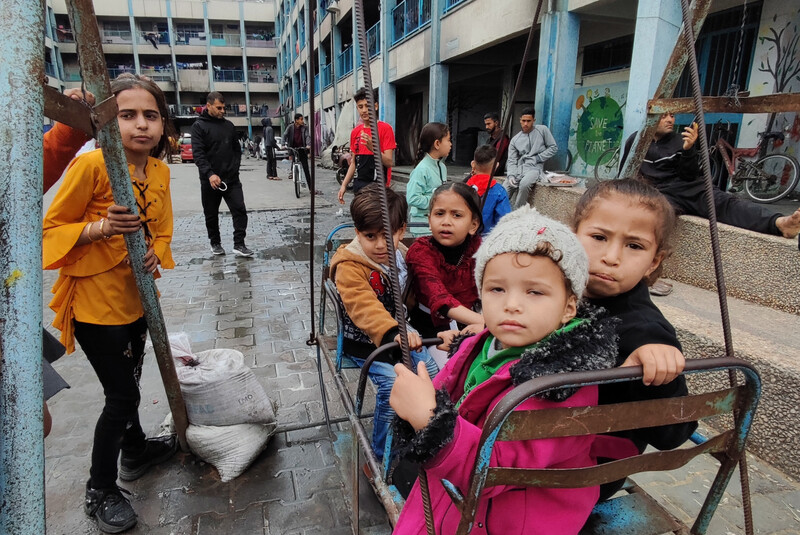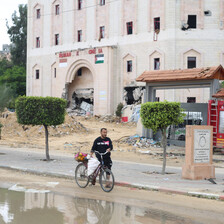The Electronic Intifada 12 April 2024

An extremely grim Eid in Gaza.
APA imagesSeham Abed strolled through the market in Rafah with her grandchildren on the eve of Eid al-Fitr.
They were shopping for clothes and hoping to find some treats for the family.
After about an hour, they found a store with clothes. The prices were very high but Seham bought pants, jackets and blouses for her grandchildren Aya, 8 and Leen, 7.
When Aya and Leen got home, they burst into tears. They would not be as well-dressed for Eid as they had been in previous years.
With Gaza sealed off, the candies and drinks that Seham would generally buy for Eid were also unavailable.
Among the few items that could be found were locally made cookies and pastries known as maamoul and kaak. A kilo of such treats now costs nearly $20 – many times more expensive than before the current war began.
As Seham was expecting that relatives would visit her for Eid, she felt obligated to buy some despite the steep prices.
Having been uprooted from her own home, Seham is now staying with her daughter in Rafah.
Seham had a very strong bond with her sister-in-law Khadija.
During the early stages of the current war, Khadija and many other members of her family were massacred when Israel attacked Jabaliya refugee camp in northern Gaza.
Seham and Khadija used to spend time together at Eid. Following the massacre, Eid “has lost all meaning,” Seham said.
Exhausted and emaciated
Mahmoud Ayyad is a doctor at al-Helal al-Emirati hospital in Rafah.
In previous years, he performed the Eid prayer at a football stadium. This year, the prayer was held on the remains of al-Farouq mosque, which was destroyed by Israel in February.
The people who gathered for the prayer looked exhausted and emaciated.
Mahmoud has been displaced from the Shujaiya neighborhood of Gaza City, where Israel has caused devastation. He now lives in Rafah with his wife and 9-month-old son Muhammad.
While he has been able to rent a small flat, others members of his family are now staying in tents.
“They are living in extreme poverty,” he said.
He has relatives who remain in northern Gaza. Other members of his extended family have been killed.
Mahmoud has bumped into some relatives on his way to work. He was struck by how pale and thin they looked.
“They have grown old much too early,” he said.
Mahmoud was unable to relax at Eid this year. He was kept busy treating injured patients at the hospital.
“This Eid, all I see is sorrow,” he said.
Faten, 11, and her family were uprooted from her home in Jabaliya earlier in the war. They found shelter in Nuseirat refugee camp, central Gaza.
On the second day of Eid, Israel launched a military assault against Nuseirat.
Faten and her family are trapped in the camp, where numerous people have been killed and large-scale destruction has been inflicted.
She described how her family are staying away from windows in the house where they are sheltering. “We are trying to avoid any shrapnel that could fly through the windows – which have been shattered because of the explosions.”
“How can we celebrate when everything is so terrible?” she asked. “Children around the world can celebrate Eid. But we are spending Eid in fear.”
Khuloud Rabah Sulaiman is a journalist living in Gaza.





